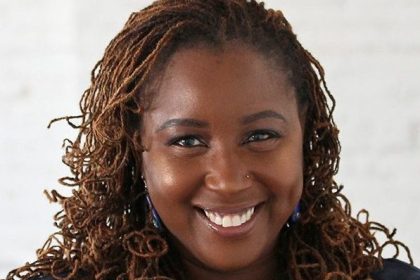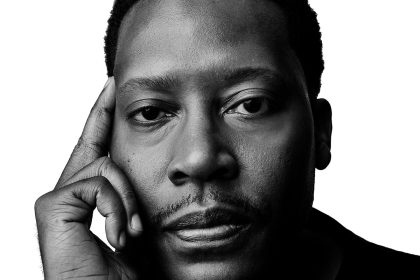In an exclusive interview with rolling out, Ken-Matt Martin a prominent force in American theater shares insights from his experiences directing the August Wilson play How I Learned What I Learned and working with renowned actor Harry Lennix. Martin discusses the importance of rigor, cultural authenticity and emotional depth in bringing Wilson’s plays to life, emphasizing the significance of connecting personally to the material.
So what does it mean to you personally, to direct an August Wilson play?
I’ve been really fortunate to direct a couple of Wilson’s plays now.The thing about directing a Wilson play is that there [are] no shortcuts. The dialogue is complex, it’s intricate. He did a really good job and was a true anthropologist in the sense of being able to capture the rhythm and the idiosyncrasies of the way that Black folks use language.
Directing Wilson, is really about rigor first and foremost, and then the other thing is that, aside from the rigor it’s about heart and spirit. You can’t direct a Wilson play and not feel the ancestors in the room — if you’re doing it right, in my humble opinion. Because the plays require that you evoke and bring these people into the space that would otherwise may have passed on and their memories would have passed on. August did the work of being able to keep their memories alive.
What was it like directing Harry Lennix?
I mean he’s an icon and, as you said, one of our greatest living actors of all time. If I’m honest, I still have to pinch myself sometimes sitting there chatting with him, or in rehearsal and just looking at him like Harry Lennix sitting across from me. We’re both really, really rigorous and workhorses. He’s brilliant and intellectual. It’s been a treat, honestly. working with him and directing him. … He couldn’t be a more down-to-earth, hardworking actor, which is all you ever really want in a collaborator.
How important is it for directors to connect personally to the material they’re directing?
When you talk about Wilson in particular, he was notorious and known for insisting that Black directors be the only people to touch his work. He was very unapologetic about that. I’m grateful because, as someone who’s been a director now, professionally, for the last decade-plus of my life. There aren’t that many opportunities. I’m very fortunate and lucky. I work a lot these days. But there actually aren’t a lot of opportunities for Black directors out there, especially Black male directors in my experience. It’s one of those things where I do think it’s lovely when you have a personal connection to the work, to actually get to be able to do that work, because that’s not always a foregone conclusion.
What is the top skill every director should have?
Listening ears. There’s a lot of people management, a lot of communication flying in all directions, and you just have to be the best listener you possibly can.
How do you hope to see the legacy of August Wilson continue to influence theater?
This is Congo Square’s 25th anniversary. So much of my career in my life has been focused in and around Black theaters, and August was so unapologetic about the need to support Black theaters. I hope that if nothing else in addition to all the beautiful work that he’s left behind, hope that people remember the importance of supporting Black theater makers and those Black theaters that are trying to make the work.
How I Learned What I Learned is playing at Broadway Playhouse at Water Tower Place in Chicago from April 20 to May 5, get tickets here.














